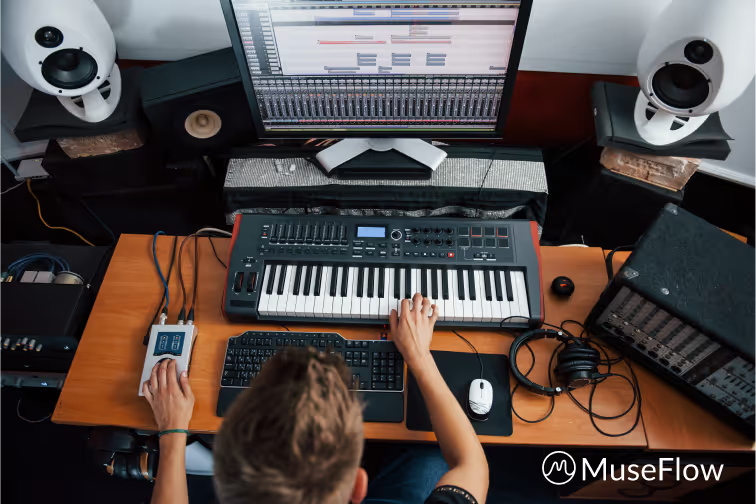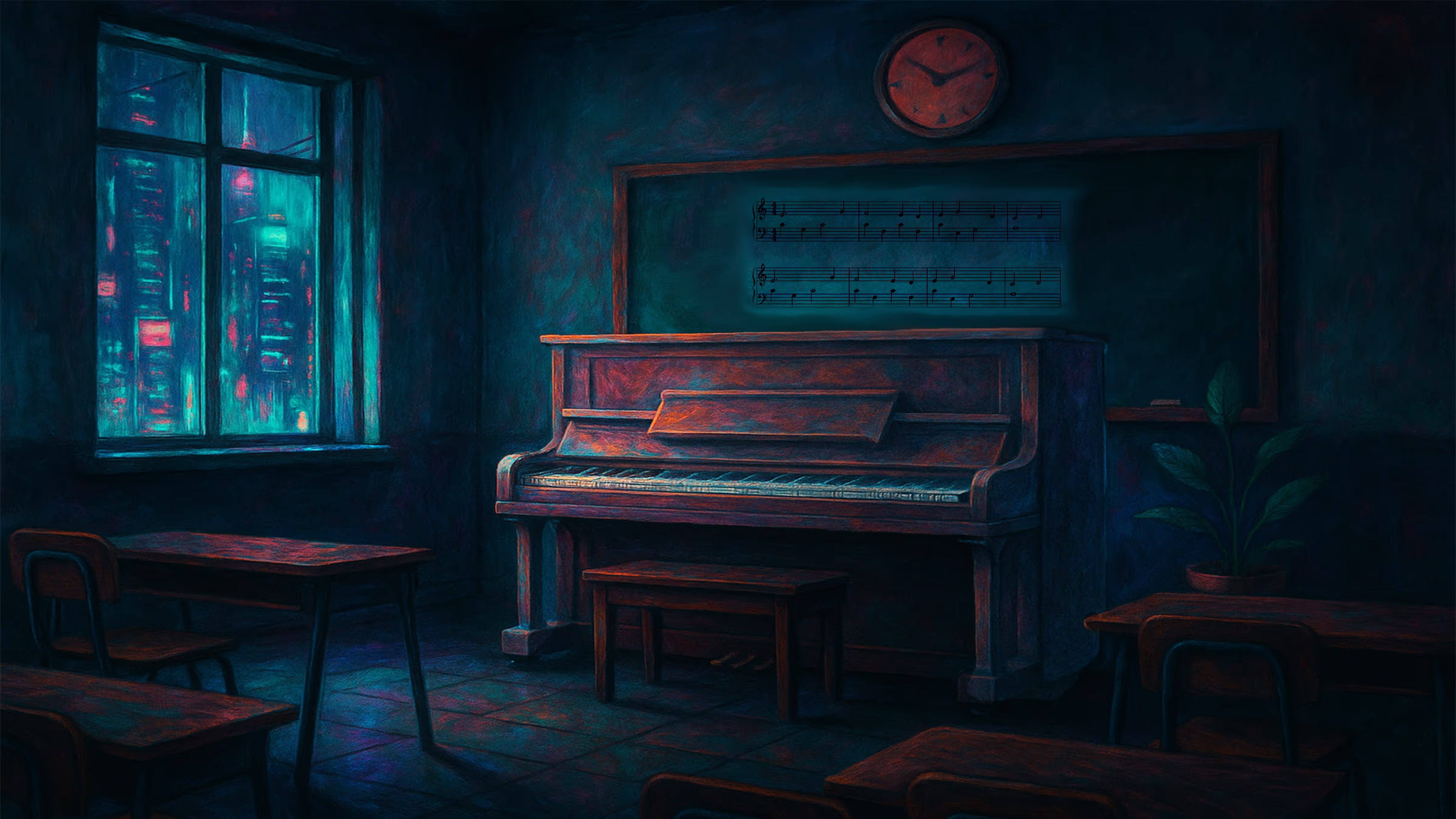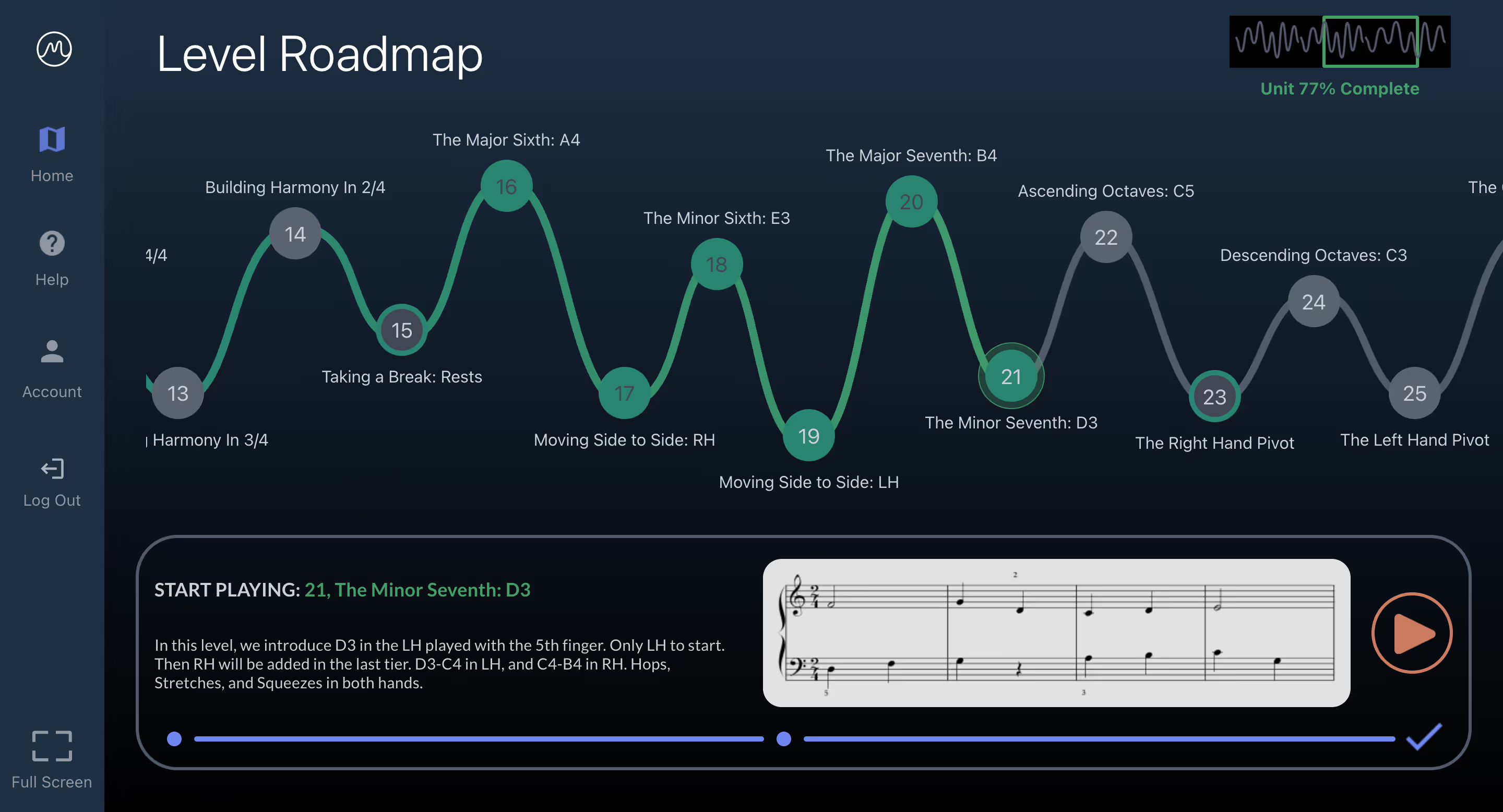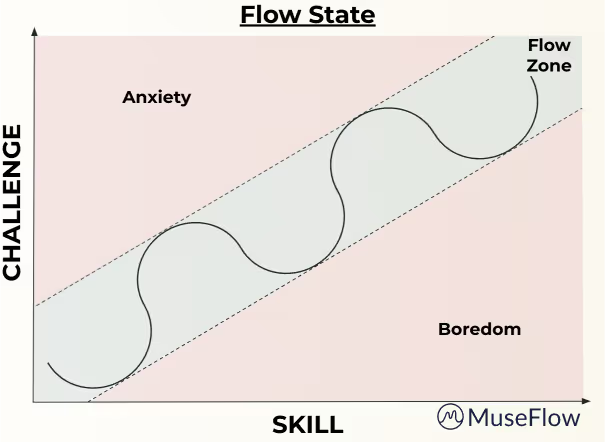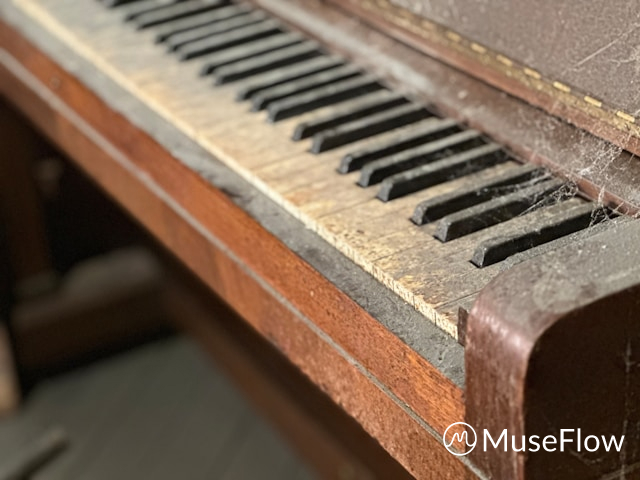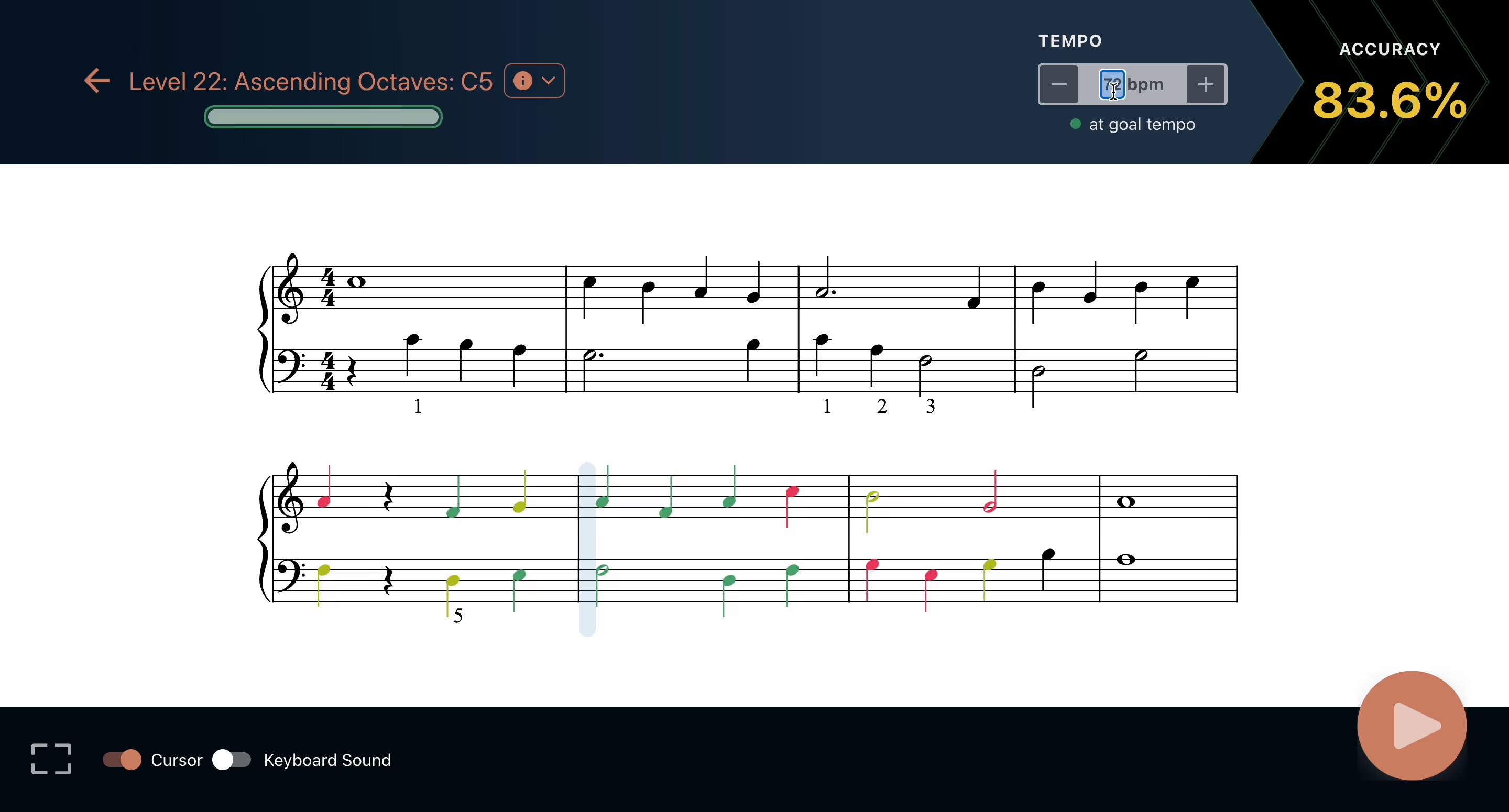Lets be honest, learning to play the piano as an adult can be really tough. Between busy schedules, daily responsibilities, and the volume of information available, it’s easy to feel OVERWHELMED.. but don’t worry! We're here to help! MuseFlow, a new AI technology, is here to make your piano learning journey fun, efficient, and enjoyable! Just like it should be. Below are 6 quick reasons how it helps adults play piano without the hassle...
1. Engaging and Fun - Like it Should be!
Learning piano should be fun, not a chore. Unfortunately most of the time it feels like a chore. MuseFlow strategically adds gamified elements into the learning experience to make it enjoyable and engaging for you. This means you have progress bars, accuracy trackers, and rewarding milestones. So that each practice session feels like a game. A fun game! This gamified approach keeps you motivated and excited to learn more.
The app’s interface is very user-friendly and visually appealing as it should be in 2024. This makes it more fun to use. Now whether you’re playing a new piece or mastering a challenging exercise, the software makes sure you have a GREAT time while learning.... After all, music is meant to be enjoyed!
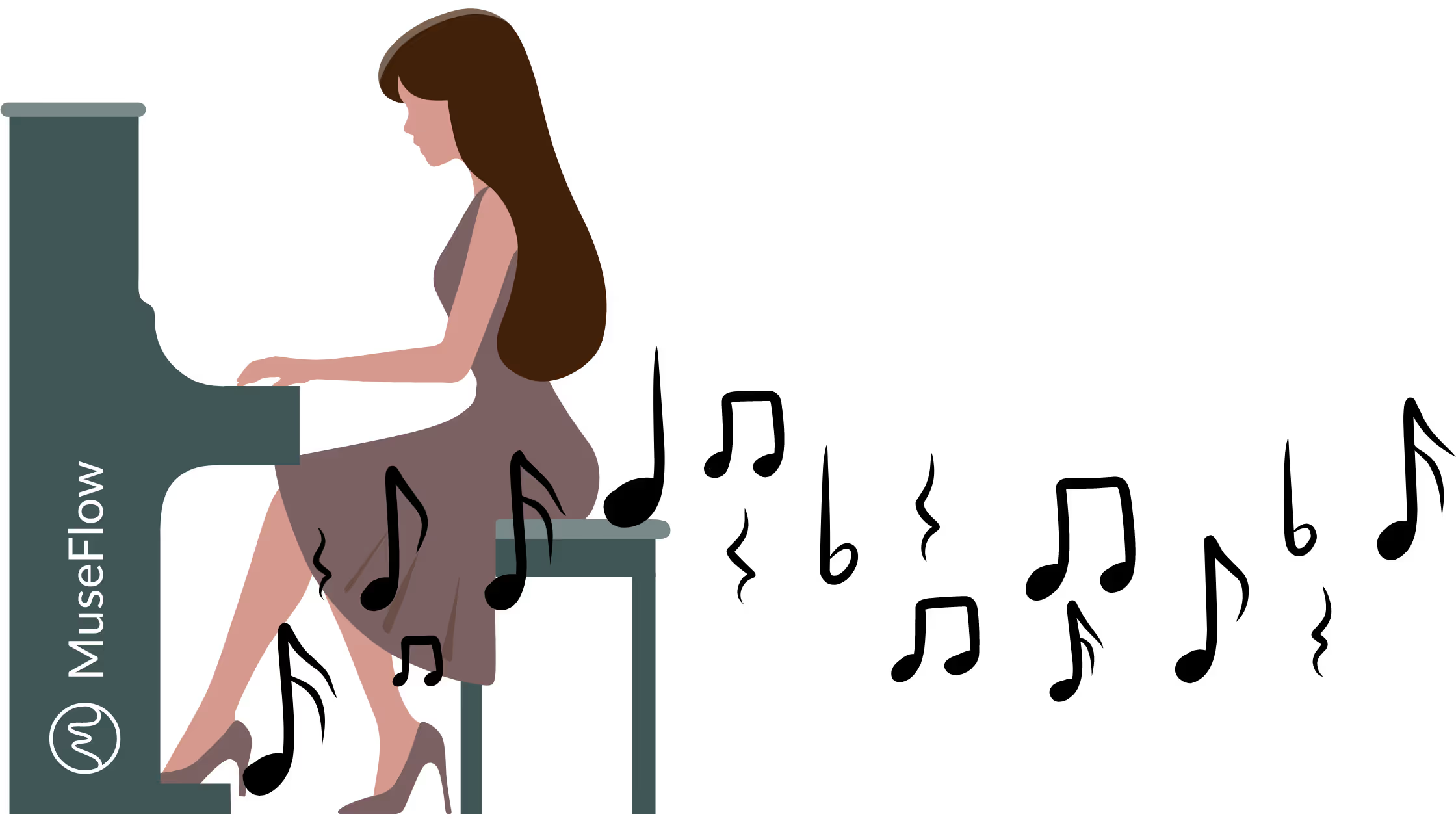
2. Personalized Learning Experience Made for you
Fortunately we live in a time where AI-driven personalization really works. This means the app tailors lessons to your specific skill level - to make sure that each session is made for your unique progress. This means you can progress at your own pace without feeling rushed or held back. This new-school personalized approach helps keep you staying motivated. You will want to go back to your lessons. It's not like a private teacher that can get frustrated with you and take the fun away.
That's why you have to imagine this software like a personal piano tutor who understands exactly where you are in your learning journey. This tutor adjusts the lessons accordingly, and is always in a good mood. That’s exactly what MuseFlow offers. It’s like having a dedicated (nice) teacher who is always there to guide you.

3. Flexible Learning Schedule
One of the biggest challenges adults face when learning piano is finding the time to practice. MuseFlow solves this problem by offering a flexible learning schedule. You can practice whenever you have a few minutes to spare, whether it’s early in the morning, during lunch breaks, or late at night.
MuseFlow’s on-demand lessons mean you’re not tied to a fixed schedule. You can fit piano practice into your busy life, making it easier to stay consistent. The app also provides practice reminders to help you maintain a regular practice routine, which is key to making steady progress.

4. Real-Time Feedback Through Technology
The California based tech startup built the app so that it provides you with real-time feedback on your playing. As you can imagine this is incredibly valuable for adults learning piano. As you play, the app listens to your performance and gives immediate feedback. To be exact, it gives you feedback on your accuracy & technique. This instant response helps you better correct mistakes on the spot, and this helps you develop amazing habits.
Traditional lessons often involve waiting for feedback until the next class, but with MuseFlow, you get it instantly! This feature makes learning fast and more effective and promises improvement... a piano lessons app that gives you instant gratification when deserved, who doesn't love instant gratification?

5. Adaptive & Innovative Music Generation
Luckily we live in a time where a software can create AI-powered music. The app can generate endless hours of new music tailored to your skill level. You must know how boring it is to play the same song over and over again? This adaptive music keeps your practice sessions fresh & exciting, which helps you to explore different styles & techniques.
This feature is particularly beneficial for adults, as it allows you to experience a wide range of musical genres and pieces. You can experiment with different styles, from classical to jazz to pop, keeping your practice sessions diverse and interesting!
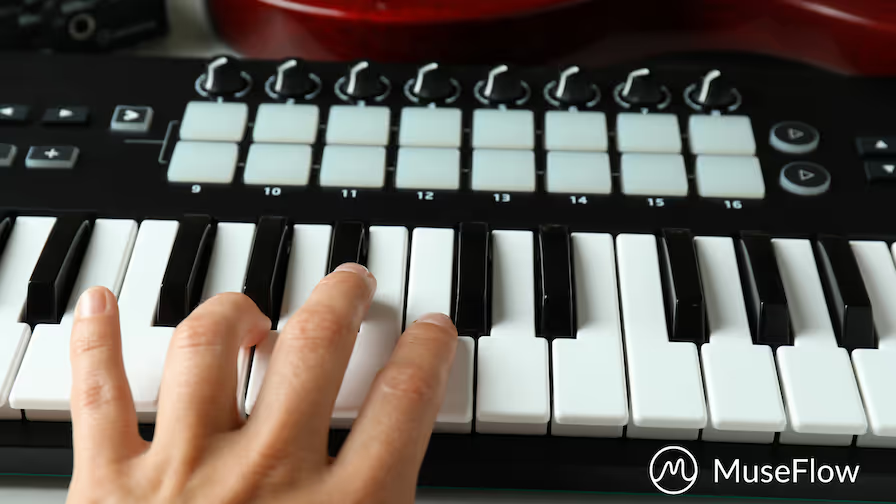
6. Personal Progress Tracking & Achievements
Keeping track of your progress is crucial for staying motivated. It's also important to track progress to get better at anything that you do. MuseFlow offers detailed progress tracking & achievements. This helps adults and grown-ups to monitor their improvement. You can see how much you’ve advanced over time, which areas need more work, and what milestones you’ve achieved. Sometimes just looking at these small wins, will make it so much easier to keep going. This makes it such a great online piano lessons for beginners.
The app’s progress reports provide very interesting insights into your own unique practice performance. It really allows you to make informed decisions about your learning journey. Make sure to always celebrate your successes and see how far you’ve come!

Conclusion
Learning piano as an adult doesn’t have to be a frustrating task. It can be really fun & rewarding! With MuseFlow, you have access to a very personalized, engaging, and flexible learning experience! One that fits into your busy life. The app’s real-time feedback, gamified elements, and adaptive music generation make learning so much more fun and effective. Also, the complete curriculum and progress tracking make sure that you’re always moving forward in the right direction.
So, if you’re looking for the best way to learn piano as an adult, give MuseFlow a try today, just click the banner below!


.svg)

.avif)
